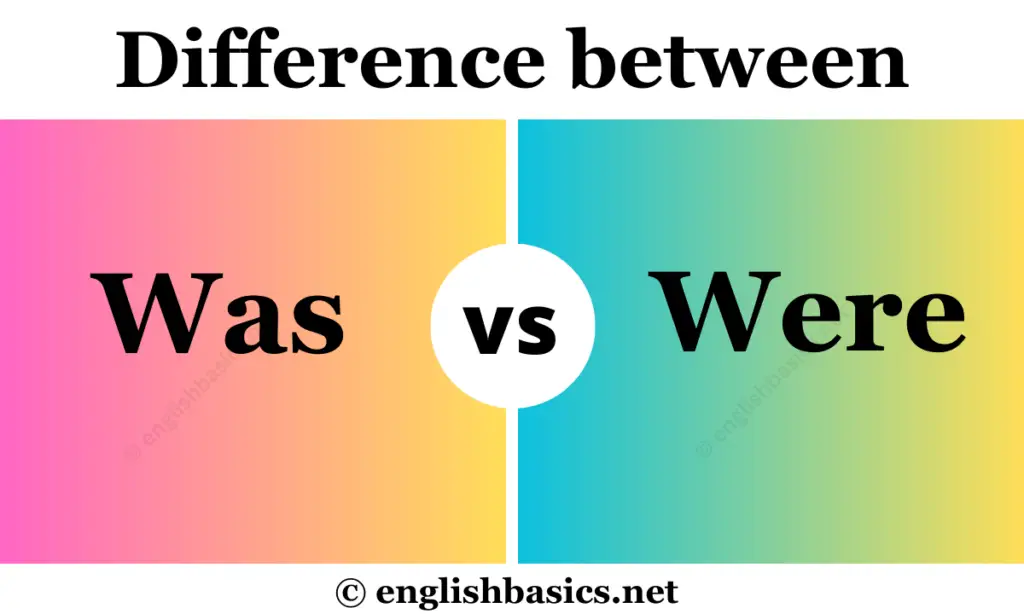Most people always get stuck thinking about correctly using the words “Was” and “Were” correctly. These words can be complicated sometimes, especially the word “were.”
“Was” and “were” are both forms of the verb “to be.” The verb “to be” generally means “to exist”. It is an irregular verb with many forms that can be confusing.
When we use “Was” and “Were” to indicate the verb “to be,” we are basically referring to it in the past tense. But there lie some subtle differences in their usage and applicability.
Let us get in deeper and try to understand them.

Was vs Were – Difference
Was
“Was” is used when we try to indicate “to be” in the past tense. “Was” is used with first-person and third-person singular pronouns. To simplify it, “Was” is used when we refer to someone as he, she, or it or when we refer to ourselves as I.
Let us look at some examples;
- I was a swimmer.
- He was a good person.
“Was” is also used as an auxiliary verb. An auxiliary verb indicates changes in tenses, moods, and aspects when used with another verb. “Was” as an auxiliary verb can form a past continuous tense. It expresses an ongoing activity in the past.
For example;
- She was writing about dogs.
- I was looking for you.
Were
“Were” is also used when we indicate the verb “to be” in the past tense. But it differs from “was” as “was” is the singular past form of “to be,” whereas “were” is used with the third-person plural, the second-person, and the first-person plural.
For example;
- You were not there at the party. (Second person)
- We were present yesterday. (First person)
- They were absent in the class. (Third person)
- John and Mary were very kind to everyone. (Third person)
“Were” is also an auxiliary verb, forming past continuous tense. But the only difference is that it is used with the third-person plural, the second-person, and the first-person plural, unlike “was,” which is used only with singular pronouns.
For example;
- They were running down the road. (Third-person plural)
- You were appropriately presenting the topic. (Second-person)
- We were trying to justify the matter. (First-person plural)
Past Indicative and Subjunctive tense
Another important difference between “was” and “were” lies in using the past subjunctive and past indicative tense.
“Was” is used when the sentence is expressed in a past indicative mood. That is when we use ordinary objective statements that state clear facts. In short, “Was” is used to indicate statements of facts. Something that has actually happened.
- I was a good cook, but I don’t cook anymore.
On the other hand, “were” is used when the sentence is in the past subjunctive tense. That is when we use hypothetical statements that do not describe reality. To simplify it, “were” is used when terms like if or wish are present. They signify something that is not a reality but an imaginary thing.
- If I were a good player, I could have performed well.
- Wish you were here right now.
- If she were the principal, she would have made remarkable changes in the school infrastructure.
Notice that the pronouns can be singular or plural when we use subjunctive moods.
So we learned that both “was” and “were” are the past tense of the verb “to be.” Both hold the same meaning, but the usage and functions are different.